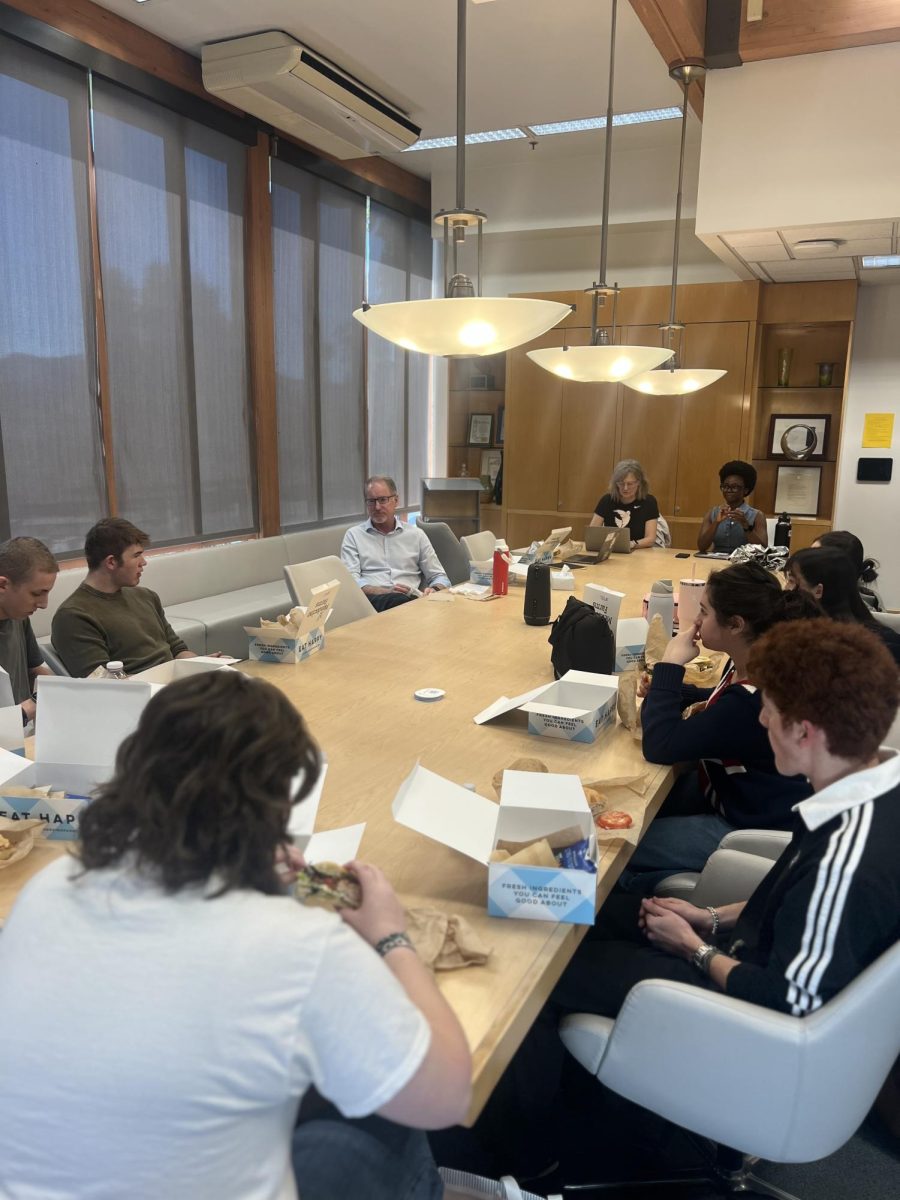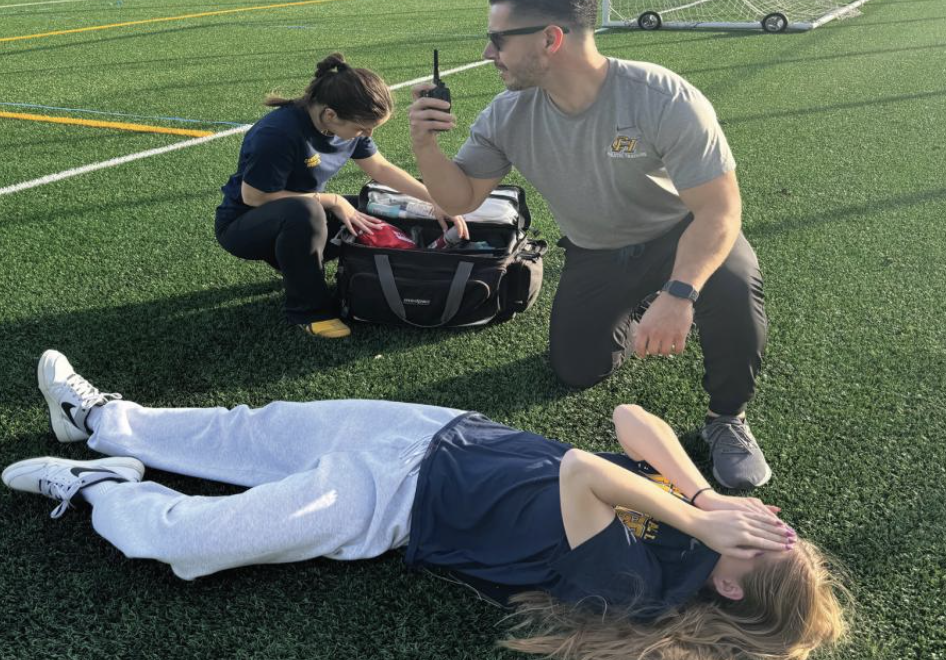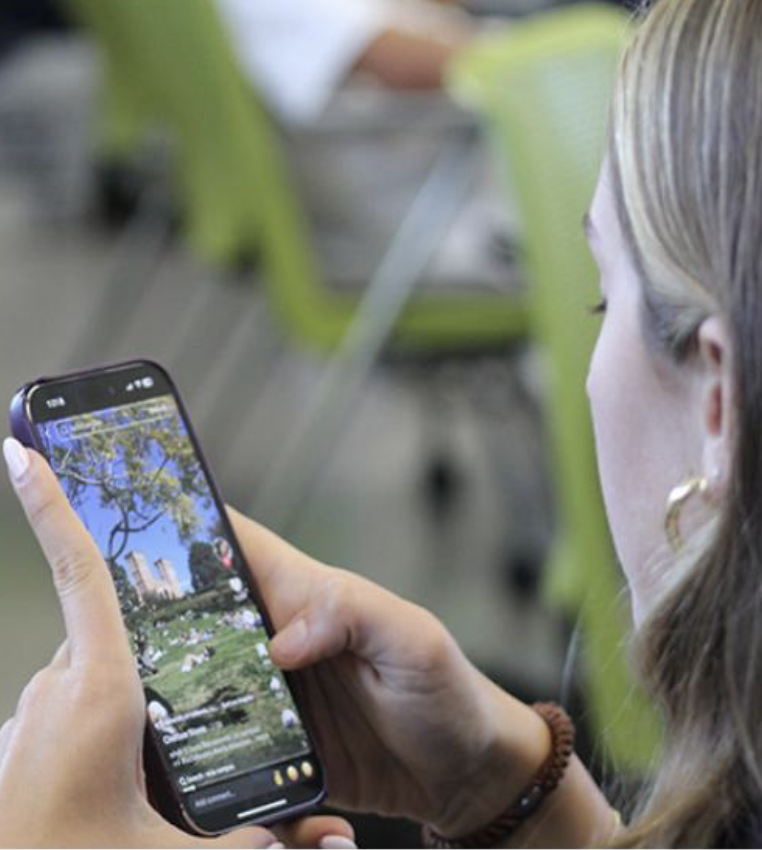Your daily commute can be harming your mental health. A September 14 2019 study conducted by Xize Wang, Daniel A Rodríguez, Olga L Sarmiento and Oscar Guaje published in the National Library of Medicine found that every ten additional minutes of commuting time increases the likelihood of screening positive for depression by 0.5%. Long commutes take up valuable hours each day and students and teachers who travel long distances to school face not only academic issues but also emotional and social challenges that come with their daily commutes.
Kaylah M.‘26 lives nearly two hours away Campbell Hall. She begins every day as early as 5:00 am in hopes of leaving by 6:45 am. Kaylah often completes her homework and studies for tests on the bus, as it’s where she spends a significant amount of her time. Although she feels she has improved her time management skills, she still struggles to finish her homework on time while still getting enough sleep.
“Living far away from school gives me a slight disadvantage academically because I have much less time to get homework and studying done compared to someone who lives very close to school,” Kaylah said. “Because of my distance from school, I get home very late, and I also play volleyball after school. So since I’m getting home very late and then rushing to volleyball practice, I’m left with little to no time to complete my assignments, which can be a problem.”
Similarly to Kaylah, high school Spanish teacher Hope Davies starts her day at 5:00 am with no time for relaxation. She has a two-hour commute to and from her home in Long Beach. She is exhausted after school, so she prioritizes responsibilities like planning, preparation and grading, before leaving for work at 6:00 am. She feels her weekdays have become repetitive as a result of her commute, but she listens to podcasts and audiobooks to keep a sense of balance and leisure.
“Most weekdays, my life is just work and driving,” Davies said. “I get home, relax for a couple of hours and then go to bed early so I can get up and do it all again. There isn’t much work-life balance.”
In addition to the pressure of managing school work, Kaylah faces an added burden to build connections in an environment where proximity can play a significant role in forming friendships. While she finds the academic challenges of living far from school difficult, she believes the social difficulties are equally as tough. She believes that students living closer to school already have a tight-knit community around them, which makes it easier for them to make friendships and stay connected.
“Kids like me who live farther away have to put in extra effort to build that sense of community for themselves,” Kaylah said. “Living far from school can sometimes feel like I’m isolated from our community at Campbell Hall, but the bus rides have also led me to meet a bunch of new people and make a lot of new friendships.”
Unlike Kaylah, Olive C. ‘27 lives five minutes away from school, allowing her to complete all of her work early, which gives her with plenty of time to hang out with her friends and family. Olive believes that being close to school significantly reduces her stress because knows she will have enough time to complete her work. She empathizes with her commuting friends who have limitations on participating in after-school activities.
“I’m also able to participate in a lot of extracurricular activities or meet with teachers after school because [I don’t] depend on my parent’s work schedule,” Olive said. “My friend’s parents work, which makes it hard for them to participate in sports or other activities because their parents are unable to pick them up.”
Middle school drama teacher Jason Rowland also benefits from a short commute. He is a six-minute walk from Campbell Hall. For over a decade, he made an hour-long commute from Tarzana. Before selling his house in Tarzana and renting closer to school, Rowland faced difficulties such as anxiety, fatigue, and reduced time with his family.
“You only get so much time in life, and to me, the time saved is worth every penny,” Rowland said. “I used to wake up at 5:55 am. Now, I wake up later, walk my dogs at 7:45 am, and even take a hot bubble bath every morning. That 20 minutes of quiet time is so important—it helps me start the day feeling calm and refreshed.”
Davies’ commute has always prevented her from attending any sports games, plays or after-school activities. She believes that creates a distance between her and her students, preventing her from forming closer relationships within the Campbell Hall community.
“I’d love to support them more,” Davies said. “It’s especially hard when students ask if I can come to their game or performance, and I have to say no. I wish I could foster more relationships outside of class time, but the distance makes that very limited.”
































